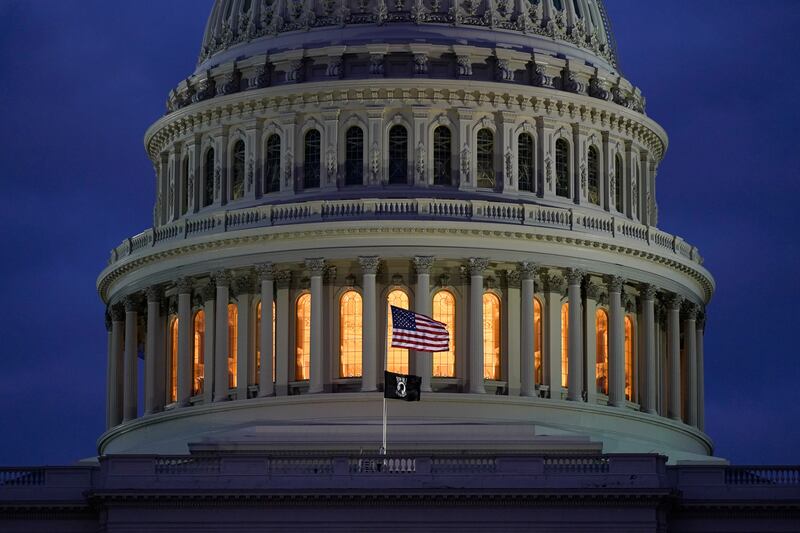In a news conference in 1986, then-President Ronald Reagan famously said, “I’ve always felt the nine most terrifying words in the English language are ‘I’m from the government, and I’m here to help.’”
Is government terrifying? While Americans differ in their preferences for more or less government involvement over certain services, government itself is not inherently evil. The framers of the Constitution believed that human weakness — ambition, selfishness, ignorance and mob mentality — could be offset through government, setting up a type of democracy called a compound republic.
George Washington called the establishment of this new government “the last great experiment for promoting human happiness.” As The John Adams Institute notes, Adams believed that such government depended not only on the right institutions but “also on the people’s character. No country could remain free for long, in his view, unless its citizens exhibited a sense of civic virtue — a willingness to put the public good ahead of their own — for otherwise, politics would be little more than an insoluble clash of conflicting interests.”
The importance of civic virtue in upholding our democracy and overcoming this “insoluble clash of conflicting interests” can be seen in these words from the Bill of Rights Institute: “The maintenance of our republican government requires the people be vigilant, informed, and virtuous, ensuring that governing institutions are directed towards their right ends.”
Such good habits, or virtues — including qualities like courage, honor, humility, integrity, justice and responsibility — “promote self-government and help guarantee that communities orient themselves towards advancing the spirit of a common purpose.” Both self- and national government depend upon civic virtue in a “government of the people, by the people, for the people,” stated Abraham Lincoln.
The Framers believed that such virtue would more likely thrive among elected and appointed officials if their loyalties were pledged to the Constitution itself and not an individual person, office or party. The president’s oath is specified in the Constitution: “I do solemnly swear (or affirm) that I will faithfully execute the Office of President of the United States, and will to the best of my Ability, preserve, protect and defend the Constitution of the United States.”
But the Constitution didn’t stop there. Article VI mandates that “The Senators and Representatives before mentioned, and the Members of the several State Legislatures, and all executive and judicial Officers, both of the United States and of the several States, shall be bound by Oath or Affirmation, to support this Constitution.”
The president is joined in swearing to uphold the Constitution by thousands of others. The vice president, members of Congress, justices of the Supreme Court, members of the military and civil servants in government service all make this same promise to the Constitution and the government it sustains. State-level officers and lawyers also swear to uphold the Constitution. In each case, their highest allegiance should be to the Constitution, not to a particular political party, leader or boss.
The importance of this responsibility was demonstrated to me when, many years ago, a member of the foreign service explained he would not participate in social media posts of a political nature, because in his position as a representative of the United States — not as a representative of a party or of an ideology, but representing the country as a whole — he needed to be nonpartisan at all times, including during nonworking hours when posted overseas. This commitment to country over party and the desire to exemplify our government at its best deeply impressed me. In my experience, such civil servants are “vigilant, informed, and virtuous,” personifying the civic virtues that will “ensur(e) that governing institutions are directed towards their right ends.”
Lincoln’s Gettysburg assertion bears repeating: The United States is a government for the people, by the people and of the people. As we cultivate our own civic virtues and expect them of our leaders, “We the People” join the founders and framers in advancing the government of our constitutional republic and “the last great experiment for promoting human happiness.”
Lisa R. Halverson is a Civics Education and Research Fellow at Utah Valley University’s Center for Constitutional Studies. She teaches “American National Government” and “Women in American Political Thought” at UVU. Lisa also serves as the advocacy director of research for Mormon Women for Ethical Government.

